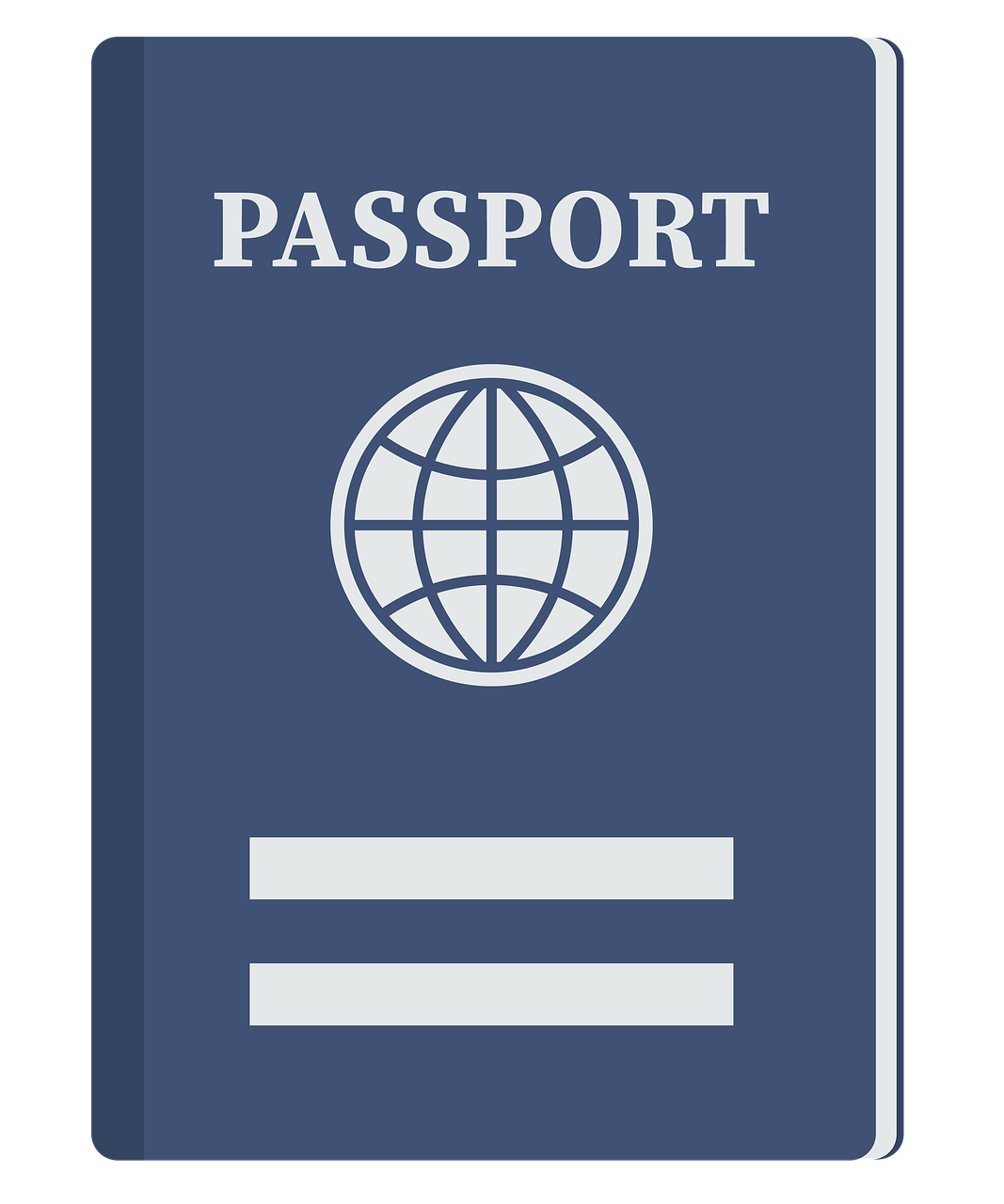Thinking about making the leap across the pond to the United Kingdom as a US citizen? Well, you’re in for an exciting adventure! While the process may have its challenges, moving to the UK as a US citizen is certainly not impossible. From navigating the visa application process to adjusting to a new culture, this article will provide you with valuable insights and tips to help make your transition as smooth as possible. Get ready to embark on a thrilling journey and start a new chapter of your life in the UK!
Visa Requirements
Moving to the UK as a US citizen requires you to navigate the visa process. The UK offers various types of visas, each with its own set of requirements. It’s important to understand these requirements and choose the visa that best suits your situation. Here are some of the most common visa options for US citizens moving to the UK.
General Requirements
Regardless of the specific visa category, there are some general requirements that you must fulfill. These include having a valid passport, demonstrating the ability to financially support yourself and any dependents, and providing relevant documents and information as requested by the UK immigration authorities.
Tier 1 (Investor) Visa
If you have significant funds to invest in the UK, you may be eligible for a Tier 1 (Investor) Visa. This visa allows you to live and work in the UK and eventually apply for indefinite leave to remain or citizenship. To qualify for this visa, you must meet specific investment criteria, such as investing a minimum amount in UK government bonds, share capital, or loan capital in active UK trading companies.
Tier 2 (General) Visa
The Tier 2 (General) Visa is designed for skilled workers who have been offered a job in the UK. To qualify, you must have a valid job offer from a UK employer who is a licensed sponsor. You also need to meet the minimum salary threshold and demonstrate your English language proficiency. This visa allows you to work in the UK for a specific employer and can potentially lead to settlement in the future.
Tier 4 (Student) Visa
If you are planning to pursue higher education in the UK, you may need to apply for a Tier 4 (Student) Visa. This visa is for students enrolled in a recognized UK educational institution. To be eligible, you need to have an unconditional offer from the institution, demonstrate your ability to financially support yourself during your studies, and meet the English language requirements.
Family and Spouse Visas
If you have a close family member or spouse who is a UK citizen or settled in the UK, you may be eligible for a Family or Spouse Visa. These visas allow you to join your family member in the UK and can lead to settlement and eventual citizenship. The specific requirements vary depending on your relationship with the UK resident.
Ancestry Visa
If you have a grandparent who was born in the UK, you may be eligible for an Ancestry Visa. This visa allows you to live and work in the UK for up to five years. To qualify, you need to provide evidence of your grandparent’s UK birth, demonstrate your intention to work in the UK, and show that you can financially support yourself during your stay.
Visitor Visa
If you plan to visit the UK for tourism, business, or other short-term purposes, you may need to apply for a Visitor Visa. This visa allows you to stay in the UK for a limited period. The specific requirements and duration of stay vary depending on the purpose of your visit.
Cost of Living
Before moving to the UK, it’s crucial to consider the cost of living. The cost of accommodation, transportation, food, healthcare, and education can vary significantly in different parts of the country. Here is a breakdown of some of the key cost factors to consider.
Accommodation
The cost of accommodation in the UK varies depending on the location and type of property. Renting a property, especially in major cities like London, can be quite expensive. It’s advisable to research the average rental prices in your desired area and budget accordingly. Alternatively, buying a property may be an option if you plan to stay in the UK for an extended period.
Transportation
Transportation costs in the UK can include public transport fares, vehicle expenses, and commuting expenses. Major cities have well-developed public transport systems, including buses, trains, and the London Underground. Owning a car can be convenient but comes with additional costs such as fuel, insurance, and parking fees.
Food and Groceries
The cost of food and groceries in the UK can vary depending on personal preferences and dietary choices. Eating out can be expensive, especially in cities, but there are also affordable options available. Cooking meals at home and shopping at local markets or supermarkets can help reduce costs.
Healthcare
The UK has a public healthcare system called the National Health Service (NHS), which provides free or low-cost healthcare to residents. As a US citizen, you may need to consider private healthcare options or obtain appropriate travel insurance to cover any healthcare expenses during your stay.
Education
If you are moving to the UK with children, it’s important to consider the cost of education. While public schools are generally free for UK residents, international students may need to pay tuition fees for their children’s education. Private schools and universities also have tuition fees that vary depending on the institution.

This image is property of pixabay.com.
Finding Employment
Finding employment in the UK as a US citizen can be challenging, but not impossible. It’s essential to familiarize yourself with the job market, understand the work permit requirements, and utilize job search strategies to increase your chances of success.
Job Market
The UK job market is competitive, but there are opportunities in various industries. Research the job market in your field of expertise and identify industries or regions where there is a high demand for your skills. Networking, attending job fairs, and using online job portals can help you connect with potential employers.
Work Permits
To work legally in the UK, you generally need a work permit or the appropriate visa that allows you to work. The Tier 2 (General) Visa, mentioned earlier, is a common route for skilled workers. Your employer needs to be a licensed sponsor and provide you with a Certificate of Sponsorship. It’s important to check the specific requirements and restrictions for your chosen work permit category.
Job Search Tips
When searching for a job in the UK, tailoring your resume and cover letter to the UK market is crucial. Familiarize yourself with UK business etiquette and customs to make a positive impression during interviews. Building a professional network, attending industry events, and leveraging online platforms like LinkedIn can also help you in your job search.
Education System
The UK has a well-regarded education system, with options available from primary school through higher education.
Primary and Secondary Education
Primary education in the UK generally begins at age five and continues until age eleven. Secondary education then follows until age sixteen or eighteen, depending on the individual’s chosen path. In most cases, education is compulsory until age sixteen. The UK offers a range of educational options, including state-funded schools, grammar schools, and private schools.
Higher Education
The UK is home to prestigious universities known for their academic excellence. Universities such as Oxford, Cambridge, and Imperial College London are renowned worldwide. Higher education in the UK can be pursued through undergraduate and postgraduate programs. Tuition fees and admission requirements vary depending on the university and course of study. Financial assistance, such as scholarships and student loans, may be available to eligible students.

This image is property of pixabay.com.
Healthcare System
The healthcare system in the UK is primarily provided by the National Health Service (NHS), a publicly funded system that offers medical services to residents.
NHS (National Health Service)
As a resident in the UK, you may be eligible for free or low-cost healthcare through the NHS. This includes access to general practitioners (GPs), specialist doctors, hospitals, and emergency care. However, access to certain services and waiting times may vary, so it’s advisable to familiarize yourself with the specific healthcare entitlements for your visa category.
Private Healthcare
While the NHS provides comprehensive healthcare, some individuals choose to opt for private healthcare for various reasons. Private healthcare offers additional benefits such as shorter waiting times for certain treatments and access to specialists. It’s important to note that private healthcare can be more expensive, and coverage varies depending on the chosen insurance plan.
Cultural Adjustment
Moving to a new country involves adapting to a new culture and social customs. The UK has its own unique set of traditions and etiquettes that you should be aware of.
Language and Communication
English is the main language spoken in the UK, but there may be regional accents and variations in vocabulary. Familiarize yourself with common phrases, greetings, and social norms to facilitate communication and improve your cultural integration. The British appreciate politeness and maintaining a certain level of formality, especially in professional settings and social interactions.
Social Etiquette
The UK has its own social etiquette, and understanding and respecting these customs can help you navigate social situations smoothly. For example, it is considered polite to queue patiently in public places, such as restaurants or bus stops. The British value punctuality, so it’s important to arrive on time for appointments and social gatherings. Additionally, a firm handshake and maintaining eye contact are typical in business and formal settings.
Cultural Differences
Each culture has its own unique characteristics, and the UK is no exception. Embrace the cultural differences and be open to new experiences. British humor, for instance, can be subtle and based on irony or sarcasm. Engaging in conversations about local customs, sports, and popular culture can help you connect with locals and foster meaningful relationships.

This image is property of pixabay.com.
Weather and Climate
The weather in the UK is known for its unpredictability, and it’s important to be prepared for different seasons and weather conditions.
Typical British Weather
The UK experiences a temperate maritime climate, which means mild winters and cool summers. Rainfall is common throughout the year, so carrying an umbrella or raincoat is advisable. However, the weather can vary significantly between regions, with northern areas typically colder than the south.
Seasonal Variations
The UK experiences distinct seasons, with spring bringing milder temperatures and blossoming flora. Summers are generally mild or warm, with longer daylight hours. Autumn is characterized by cooler temperatures and vibrant foliage. Winters can vary from mild to cold, with snowfall more common in certain regions.
Cost of Moving
Moving to the UK involves various costs, including transportation of belongings, visa and immigration fees, and additional expenses that may arise during the relocation process.
Transportation of Belongings
The cost of moving your belongings to the UK can vary depending on the volume of goods and the distance involved. You can choose to hire professional moving services or opt for self-packaging and shipping options. Research different providers, compare quotes, and ensure that you comply with customs regulations and requirements.
Visa and Immigration Fees
Applying for a visa involves certain fees that need to be paid to the UK immigration authorities. The specific fees depend on the visa category and any additional services you may require. It’s important to budget for these fees and plan accordingly.
Additional Expenses
In addition to the core moving expenses, there may be additional costs associated with settling into your new home. These can include setting up utilities, purchasing furniture or household items, and any unforeseen costs that arise during the initial stages of adjusting to a new country.
Managing Finances
Managing your finances effectively is crucial when relocating to the UK. Understanding the banking system, taxes, and currency exchange options will help you navigate the financial aspects of your new life.
Banking and Taxes
Opening a bank account in the UK is essential for managing your finances. Research different banks and the services they offer, such as international transfers and online banking. Familiarize yourself with UK tax regulations and your obligations as a resident or non-resident taxpayer. Seeking professional advice from a tax advisor or accountant can be beneficial.
Currency Exchange
If you need to transfer funds from your US bank account to a UK bank account, consider the currency exchange rates and associated fees. There are several options available, including banks, money transfer services, and online platforms. It’s advisable to compare rates and fees to find the most cost-effective method.
Community and Support
Building a support network and connecting with fellow expats and local communities can help ease the transition and provide resources and guidance.
Expat Groups
There are numerous expat groups and communities in the UK where you can connect with like-minded individuals and gain valuable insights and support. These groups often organize events, social gatherings, and provide resources to help you settle into your new life.
US Embassies and Consulates
The US Embassy and Consulates in the UK can offer assistance and support to US citizens. They provide consular services, including passport renewal and assistance in case of emergencies or unforeseen circumstances. Familiarize yourself with their contact information and the services they offer.
Local Support Networks
Additionally, actively seeking out local support networks in your chosen location can provide valuable insights into the community, help you build connections, and access resources that can make your transition smoother. Local community centers, cultural organizations, and online forums can be great sources of information and support.
Moving to the UK as a US citizen is an exciting journey, but it requires careful planning and consideration of various factors. Understanding the visa requirements, cost of living, job market, education system, healthcare system, cultural differences, weather, and managing finances will help ensure a smooth transition and a successful start to your new life in the UK. With the right preparation and a friendly attitude, you’ll soon feel at home in this vibrant and diverse country.
Didn't find what you were looking for? Search here
